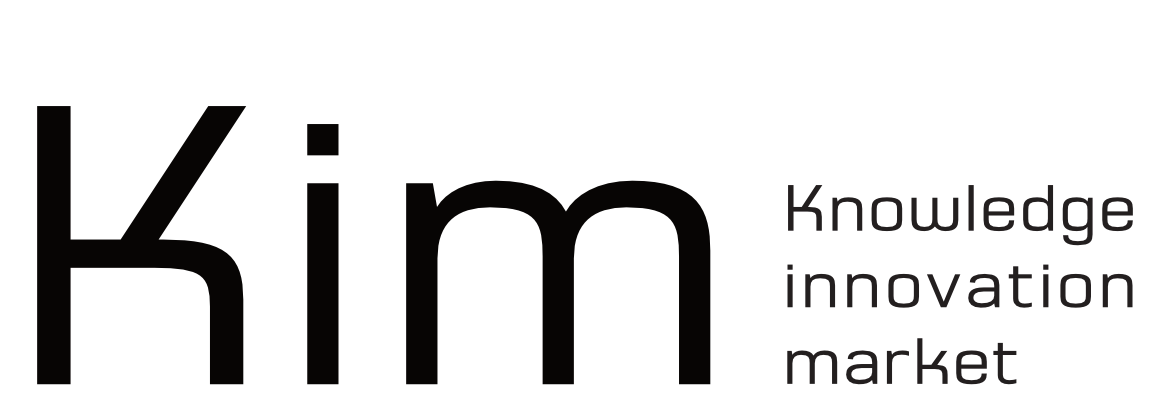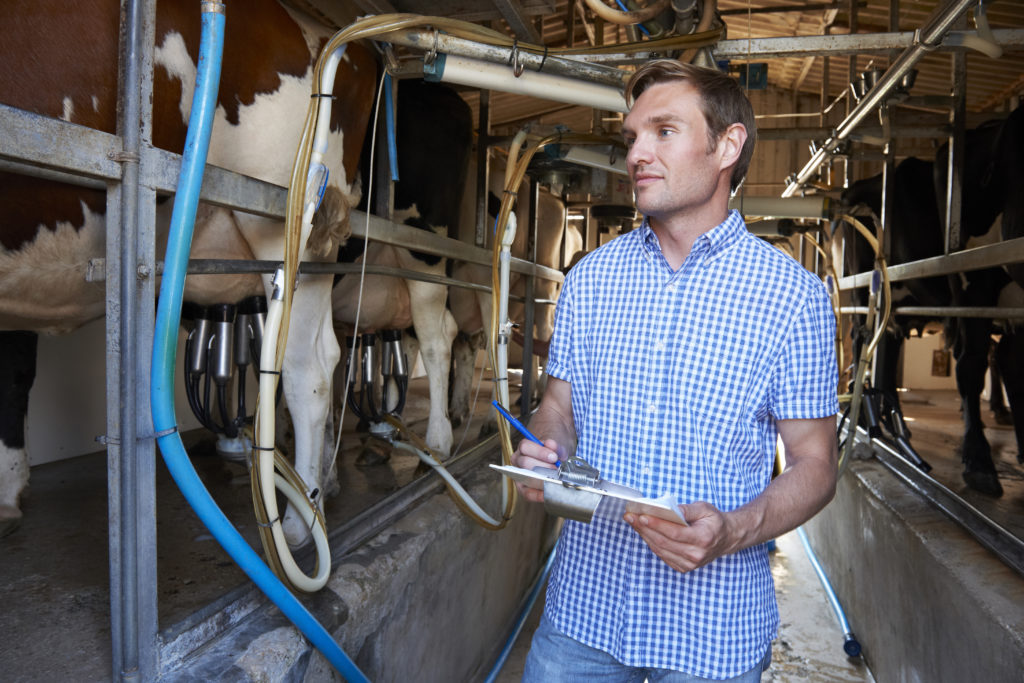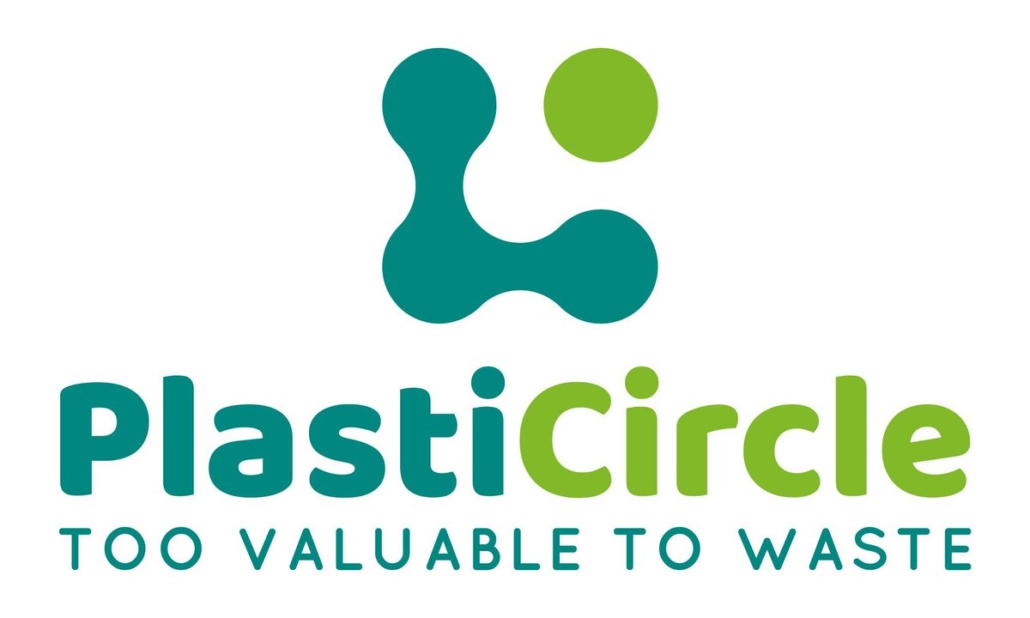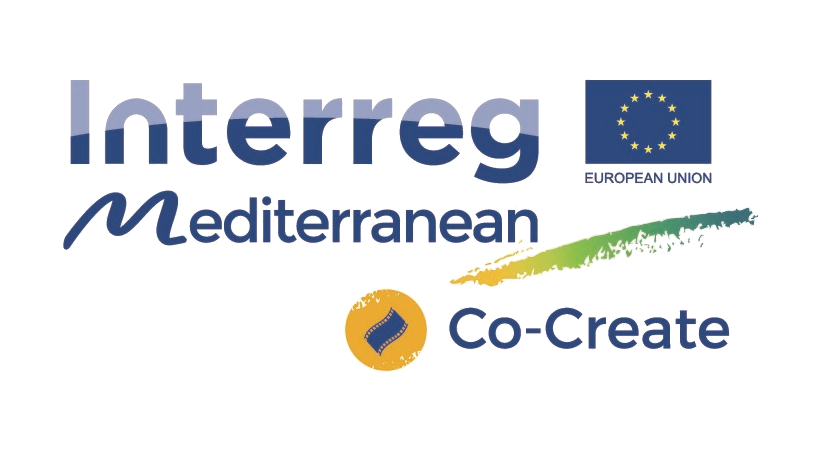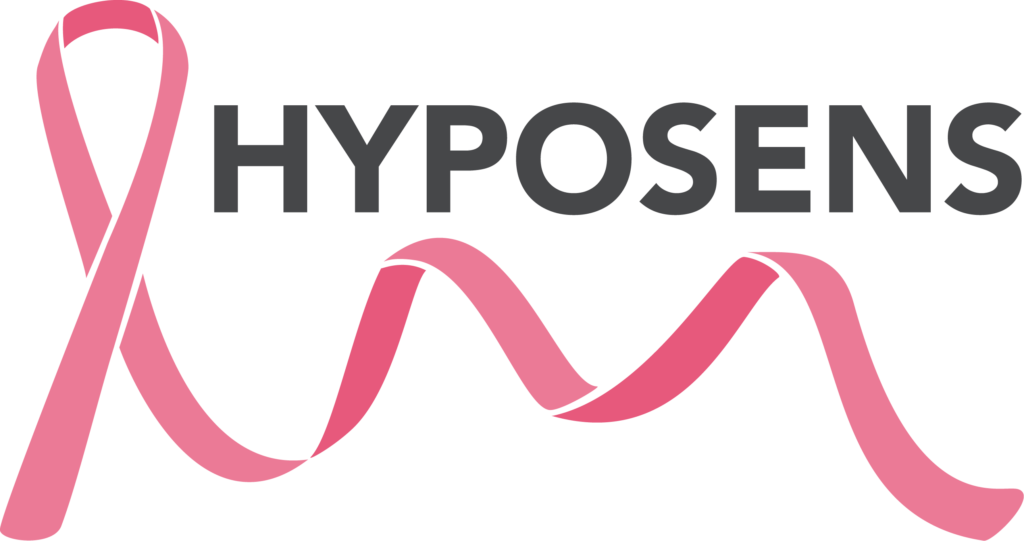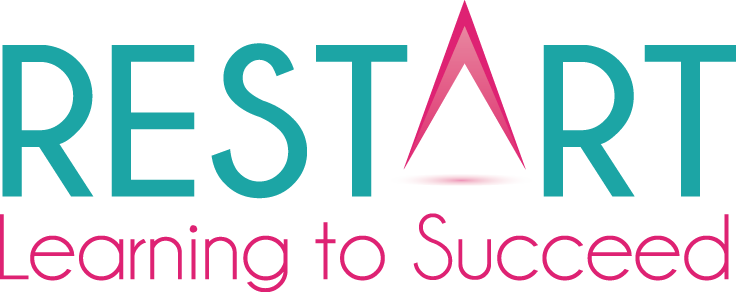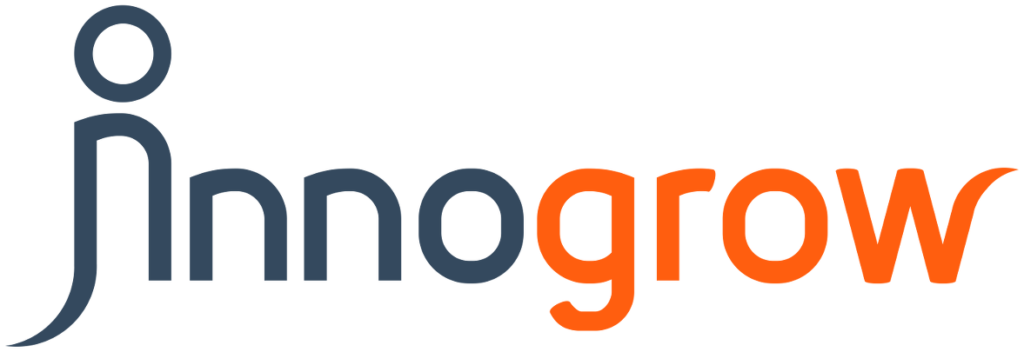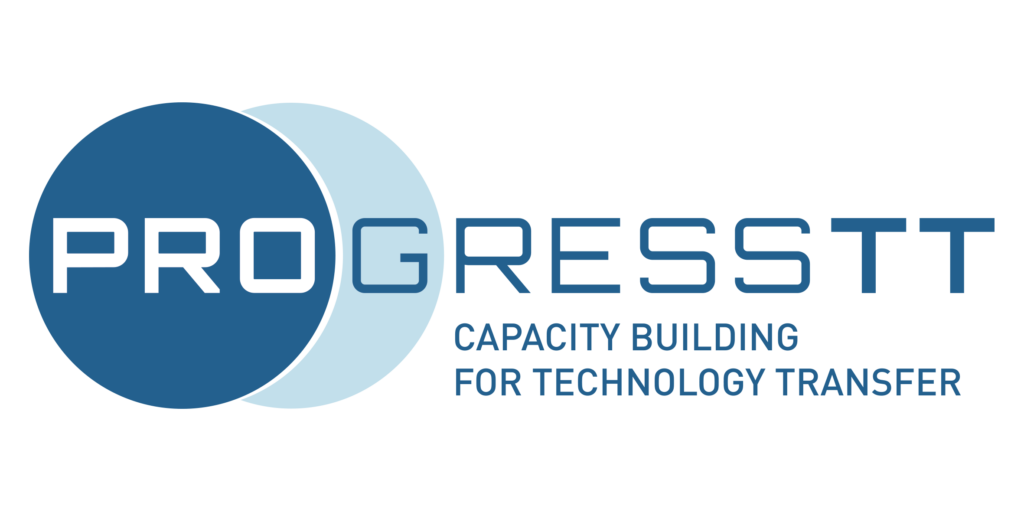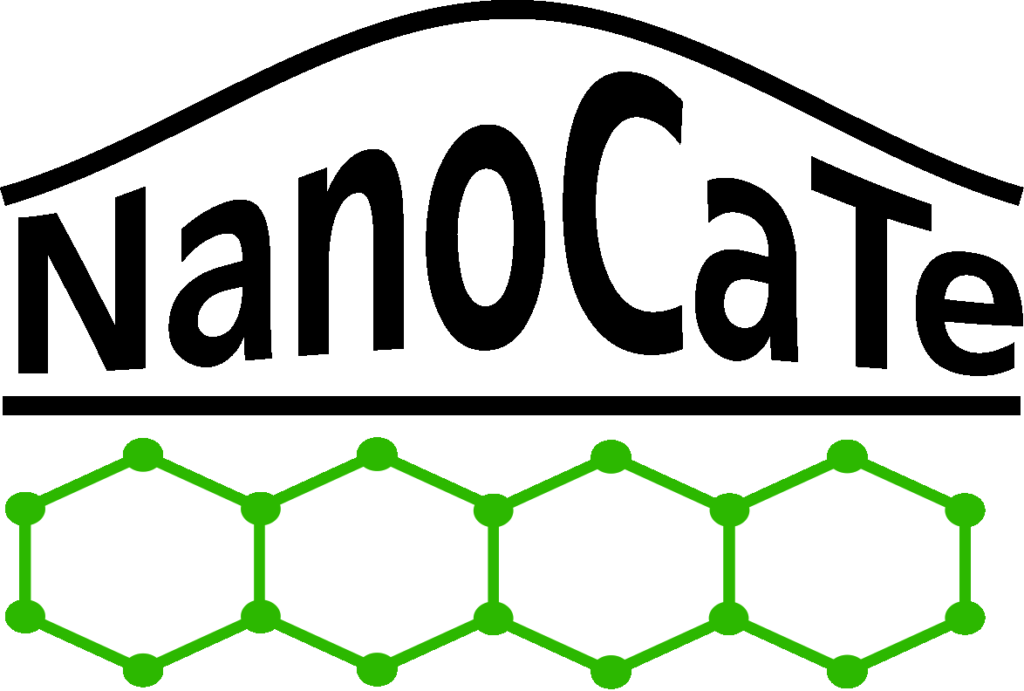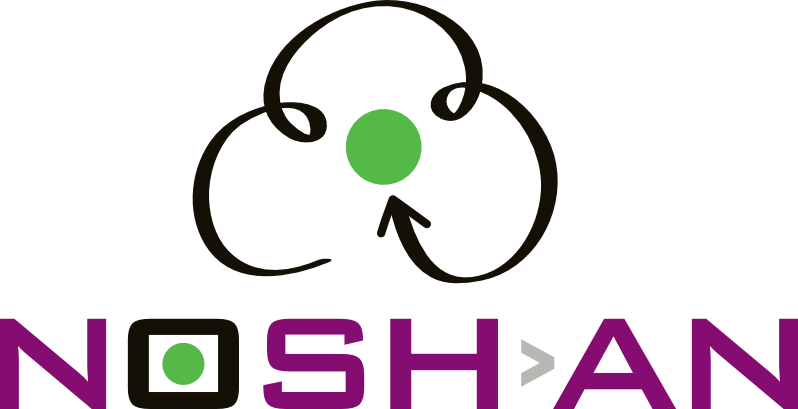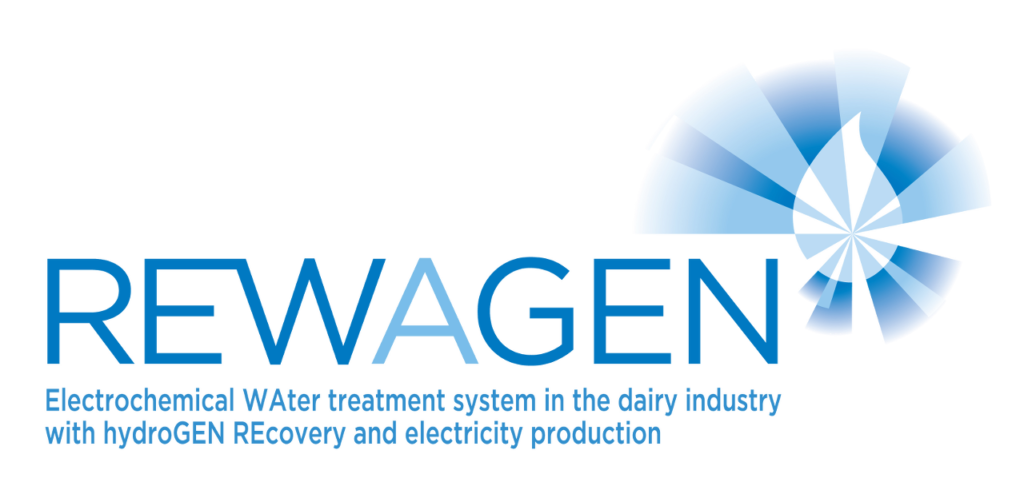European Green Deal: a great opportunity to go green
Interested in contributing to more green, low-carbon, energy efficient, climate resilient future? The European Commission has launched the European Green Deal as part of the Horizon 2020 programme, for institutions and stakeholders to take part in research and innovation actions aimed at the green transition of EU societies.
The EU Green Deal Call will support:
- Pilot applications, demonstration projects and innovative products
- Innovation for better management of the green and digital transition
- Social and value chain innovation
In addition to technology development and demonstration, this call encourages experimentation and social innovation to find the new ways in engaging civil society and empowering citizens.
In relation to the current pandemic, this call will contribute to ecological and digital recovery and increase the resilience of society, for example in agriculture, acceleration of biodiversity from renewable energy, clean transport and modernization towards a clean and circular industry.
European Green Deal FAQS
The European Green Deal (EGD) is a part of the Horizon 2020 programme, a €1 billion call for research and innovation projects that respond to the climate crisis and help protect Europe's unique ecosystems and biodiversity.
It is divided in 11 Call areas with topics such as: climate action, energy transition, cross-sectoral challenges, clean energy and environment, circular economy, energy efficiency, smart mobility, biodiversity and ecosystem restoring, citizen’s engagement.
Research and innovation institutions and related entities; SMEs, public institutions, research institutions, universities, cities, municipalities, NGO’s, business acceleration institutions, etc.
The EGD will foster the Green partnerships to help drive the huge transformations in environment, society and the economy that the European Green Deal calls for.
The European Green Deal will improve the well-being and health of citizens and future generations. Making energy, transport and buildings greener, improving quality of the air, water and soil, producing healthier food and sustainable agriculture.
The EGD will spur Europe's recovery from the coronavirus crisis by turning green challenges into innovation opportunities.
The European Commission will open the Call for Proposals on specific areas of the European Green Deal.
It will also provide an Action plan to boost the efficient use of resources by moving to a clean, circular economy and restore biodiversity and cut pollution to make the EU economy sustainable.
The EGD Call is opened on September 14th 2020. End January of 2021 will be the deadline for submitting project proposals.
As part of the European Research & Innovation Days which will be held virtually on 22-24 September 2020, a Horizon 2020 Green Deal Call Info Day and Brokerage event will take place.
Looking for a partnership?Contact us!
Green Deal Areas

KIM in European Projects
KIM, your EU Partner
KIM has developed a portfolio of services focused on satisfying the needs of all actors in the innovation system of the regions in which it operates, from science and technology parks, companies and business associations, to universities, research centers, including public institutions and public administrations.
The aim of KIM and its network of collaborators is to cover all phases of the value chain of implementation of dynamisation models on innovation, internationalization, infrastructures, business growth and knowledge transfer.
KIM offers expertise in a variety of roles in such project collaboration including project coordination, research valorization and exploitation, design management, market development and commercialization activities.
KIM believes that a truly efficient innovation must involve cooperation between the innovation agents, research centres and stakeholders close to the market. Open Innovation initiatives seek to bring innovative solutions to the market, wich can be eventually used to have a positive impact on people’s lives. This cooperation needs to be developed through alliances, agreements and knowledge interchange and dissemination between the different actors of innovation.
KIM core areas
- Business facilitation
- Entrepreneurship
- Knowledge transfer
- Open innovation
- Circular economy
- Sustainability
- Bioeconomy
- Environment
- Biodiversity
- Space
- IPR
KIM Relevant experience
The European Union is committed to make Europe a competitive and innovative region by setting up the cooperation and financing programmes that favour collaboration between European partners.
KIM participates actively in these projects to pursue its mission of improving European competitiveness and offers its expertise to partners and clients, to facilitate their acces to projects of innovation and territorial development.
KIM has participated as a partner in projects funded by the flagship programmes of innovation (FP7 and Horizon 2020). In all these projects, KIM has lead the Work Package on Dissemination and Exploitation, using its know-how and its contact network to disseminate the results of the project and to help to bring the resultant technology and solutions to the market, using the best route. KIM has also been a partner in prokects funded by the MED Programme, wich works to enhance innovation, environment and accessibility. In these projects, KIM has used the experience in IPR management and training to contribute to the goals of the projects.
The involvement of KIM in European projects has not only been as a partner of the consortia. KIM has been selected and contracted as an external expert in various projects task funded by different programmes, such as Interreg IV-C, ENPI CBC MED, SUDOE, MED Programme of the Lifelong Learning Programme. KIM has provided these projects with its expertise in project management, communication and dissemination activities, training activities, business-modelling tasks, and more.
Due to a refined experience in European projects and a wide network of partners, KIM has come to develop comprehensive service agreements with various entities interested in participating in European projects. Chambers of Commerce, clusters, business associations and innovative enterprises are key partners in European projects, but they sometimes lack the specific knowledge of institutional mechanisms to set up and manage a project. By setting up an External European Project Offices, KIM detects interesting opportunities tailored to the needs and interests of the entities, helps them to write the proposal and to prepare the budget for it. Upon approval of the proposal, KIM gives support in the negotiation phase and offers its knowledge and skills in the execution phase according to the agreements.
Projects with KIM as a Partner
PROJECT NAME: iVET–INNOVATION FOR VOCATIONAL EDUCATION TRAINERS
PROJECT WEB: http://ivetproject.eu/
PROGRAM: Erasmus+KA220-VET -Cooperation partnerships in vocational education and training
PROJECT ID: 2021‐1‐ES01‐KA220‐VET‐000029626
PROJECT DURATION: 28th February 2022 - 27th February 2024
TOTAL COST: 280.587€
EU CONTRIBUTION:
OBJETIVE: The iVET project wants to improve the quality and relevance of Technical VTE, strengthening them through the incorporation of tools and knowledge of innovation and technology transfer in their strategic work. As a result, participants can improve their relationship with the productive and social sectors and, therefore, contribute to the development of human capital with the necessary training to face the challenges of the European economy.
- To train Technical VTE teachers, administrative-academics or managers in innovation and technology transfer.
- To develop strategies for the transferring of the acquired knowledge, in the work environment of participating teachers and professionals whose final beneficiary is students.
- To generate links between the participants, with professionals specialized in Innovation and Technology Transfer, which allow them to develop (or continue to develop) personal and institutional networks over time.
PARTNERS:
- Osengo
- Euroform RFS
- Escola Profissional de Estudos Técnicos - EPET
- HATEC
- Fundació Tr@ms
- Fundació Knowledge Innovation Market Barcelona
- Center for Social Innovation
PROJECT NAME: Open Data for European Open iNnovation (ODEON)
PROJECT WEB: https://odeon.interreg-med.eu
PROGRAM: Interreg Med
PROYECTO ID: 3258
PROJECT DURATION: 2017/12/1-2020/05/31
TOTAL COST: 2,013,842.76 €
EU CONTRIBUTION: 2,013,842.76 €
OBJETIVE: ODEON's main objective is to test a model and related instruments to set-up an innovative MED Data Cluster composed by SMEs, start-ups and Research Institutions able to develop the entrepreneurial, marketing and social value of Open Data; the MED Data Cluster will be supported by local sustainable service providers (Data HUBs) able to trigger public actors' attitude to publish good open data, to assist SMEs and start-ups to develop disruptive products and innovative services addressed to customers and citizens, to strengthen the internationalization strategies, the impact of the Data Economy for the MED sustainable growth and the quality of life. The clustering phase will be strengthened by capacity building activities addressed to all users (quadruple helix approach) to promote the Data Economy. ODEON project will address its activities both to Regional/National Authorities to increase the implementation of the e-government policies with good data available (Public Information System), to clusters and SMEs both dealing with Data/Digital technologies and the strategic MED sectors (blue growth, green growth, creative industries) to promote cooperation with new products and services, to intermediaries organization that will be trained to assist youths, start-ups and SMEs. ODEON project aims not only to the economic growth of MED Area, but even to contribute to the social innovation.
PARTNERS:
- Veneto región (Italy)
- Chamber of Economy of Montenegro (Montenegro)
- Croatian Agency for SMEs, Innovations and Investments (Croatia)
- Technology Park Ljubljana Ltd.(Slovenia)
- Greek Free Open Source Software Society (Greece)
- SARGA. -GOVERNMENT OF ARAGON (Spain)
- Agency for Sustainable Mediterranean Cities and Territories (France)
- Padova Chamber of Commerce Industry Crafts Agriculture (Italy)
- KNOWLEDGE INNOVATION MARKET FOUNDATION (Spain)
- REGION OF CRETE (Greece)
MORE INFORMATION:
PROJECT NAME: ASTROPRENEURS - Turning space-related ideas into viable businesses and promoting opportunities for entrepreneurs coming from space and non-space sectors.
PROJECT WEB: http://astropreneurs.eu/
PROGRAM: H2020-EU.2.1.6.1.2. - Boost innovation between space and non-space sectors
PROJECT ID: 776258
PROJECT DURATION: 01/01/2018 – 30/06/2020
TOTAL COST: 1 999 689,50 €
EU CONTRIBUTION: 1 999 689,50 €
OBJETIVE: Support entrepreneurs, startups and SMEs, coming from space and non-space sectors, to create viable business cases and have faster markets approaches by mentoring them on businesses and technical needs, helping them to access private and public funding, but also to overcome the financial, administrative and networking barriers that are now preventing them from more success in the commercial phases.
PARTNERS: Instituto Pedro Nunes (PT), Verhaert (BE), Brimatech Services GmbH (AT), Science and Technology Facilities Council – STFC (UK), Aerospace Valley (FR), Centrum für Satellitennavigation Hessen – CESAH (DE), CzechInvest (UK), and Knowledge Innovation Market – KIM (SP).
PROJECT NAME: SILKFUSION - Genetically engineered human pluripotent stem cells, functionalized silk-fibroin platforms and bio-inks: a novel solution for large-scale ex-vivo platelet production, transfusion and drug research
PROJECT WEB: http://silkfusion.eu/
PROGRAM: H2020-FETOPEN-1-2016-2017
PROYECTO ID: 767309
PROJECT DURATION: 2017/11/01 - 2021/11/31
TOTAL COST: 2 998 500,01 €
EU CONTRIBUTION: 2 998 500 €
OBJETIVE: The demand for human platelets (plts) for medical research and clinical applications is massive. The primary goal of SilkFUSION is to engineer groundbreaking 3D nanotechnologies for large-scale production of blood plts for human transfusion from human pluripotent stem cells (hPSCs).
Our hypothesis is that plt production ex-vivo can be optimized by providing megakaryocytes (Mks) with the correct physical and biochemical environment. To prove this, we will develop a unique technological platform by engineering non-thrombogenic silk-fibroin biomaterial with proteins, that were proven to promote a 55-fold gain in plt production, to create a three-dimensional ex-vivo bone marrow model that will enhance plt release from Mks derived from hPSCs. Our platform will include:
- Novel applications to study pathogenetic mechanisms in patients with inherited platelet production disorders using genetically modified hPSCs
- Screening technology for predicting therapeutic efficacy of drugs for thrombocytopenic patients. The development of this technology will exploit an extremely innovative approach using silk-fibroin as a bio-ink for 3D printing a "live chip" containing viable Mks for reproducible drug testing.
Our long-term vision is to foster the production of plts in-vitro for clinical transfusions in humans at a scale and cost that will address current supply challenges regarding:
- Immunologically matched products to alloimmunised patients.
- “Supercharged” platelets with recombinant FVIIa generating plts specifically suited for patients with acute haemorrhage resulting from trauma, surgery and wounded in conflict zones.
The successful development and distribution of the SilkFUSION platforms will also offer researchers and clinicians specialized precision instruments and bio-ink kits for determining the safety and efficacy of drugs, reducing costs of ineffective therapies while promoting affordable functional strategies for the development of novel molecules.
PARTNERS:
- UNIVERSITA DEGLI STUDI DI PAVIA (Italy)
- THE CHANCELLOR, MASTERS AND SCHOLARS OF THE UNIVERSITY OF CAMBRIDGE (United Kingdom)
- INSTITUT GUSTAVE ROUSSY (France)
- INTEGRATED SYSTEMS ENGINEERING SRL (Italy)
- CELLINK AB (Sweden)
- KNOWLEDGE INNOVATION MARKET S.L. (Spain)
PROJECT NAME: PLASTICIRCLE - Improvement of the plastic packaging waste chain from a circular economy approach
PROGRAM: H2020-EU.3.5.4. - Enabling the transition towards a green economy and society through eco-innovation
PROYECTO ID: 730292
PROJECT DURATION: 2017/06/01 - 2021/05/31
TOTAL COST: 8 674 540,89 €
EU CONTRIBUTION: 7 774 016,75 €
OBJETIVE: The European plastic market is not currently aligned with the circular economy. More than 25.8 million tonnes of plastic waste are produced per year in the EU28 being recycled only 29.7%. This represents a clear loose in the plastic market loop (losses of €10.56bn). Moreover, this goes against the EU legislation on waste (high environmental impact; 23.8 Mt of CO2).
Low recycling rates of plastic are mainly due to the situation of packaging waste (i.e. main plastic waste fraction), since it is mainly domestic residue and consequently the quality of the material collected depends on the system of segregation available and the environmental awareness of citizens.
PlastiCircle aims to develop and implement a holistic process to increase recycling rates of packaging waste in Europe. This will allow to reprocess again plastic waste in the same value chain (i.e. Circular economy; closure of plastic loop). This process is based on four axes: collection (to increase quantity of packaging collected), transport (to reduce costs of recovered plastic), sorting (to increase quality of recovered plastic), and valorization in value-added products (i.e. foam boards, automotive parts like engine covers/bumpers/dashboards, bituminous roofing membranes, garbage bags, asphalt sheets/roofing felts and urban furniture like fences/benches/protection walls).
The target is to increase collection from 81.7% to 87% and valorization in a 9.8%. The implementation of PlastiCircle approach in Europe have the potential to increase collected plastic in 861,250t (reaching 14.14 Mt) and valorization in 1.59Mt. The valorization of this new material, represents a market value of €2.86bn-€7.95bn. Taking into account current figures of the plastic sector (turnover €350bn, 62,000 companies, 1.45M employees), this could imply creation of 500-1400 new companies and the generation of 11,900-33,000 new jobs in the medium to long term if PlastiCircle approach is extended in a EU level.
PARTNERS:
- INSTITUTO TECNOLÓGICO DEL EMBALAJE, TRANSPORTE Y LOGÍSTICA (Spain)
- STIFTELSEN SINTEF (Norway)
- RTT STEINERT GMBH (Germany)
- AXION RECYCLING LTD (United Kingdom)
- CENTRO RICERCHE FIAT SCPA (Italy)
- GEMEENTE UTRECHT (Netherlands)
- FUNDACIÓN DE LA COMUNITAT VALENCIANA PARA LA PROMOCIÓN ESTRATÉGICA EL DESARROLLO Y LA INNOVACIÓN URBANA (Spain)
- MUNICIPALITY OF ALBA IULIA (Romania)
- MESTNA OBCINA VELENJE (Slovenia)
- SOCIEDAD ANÓNIMA AGRICULTORES DE LA VEGA DE VALENCIA (Spain)
- POLARIS M HOLDING SRL (Romania)
- INDUSTRIAS TERMOPLÁSTICAS VALENCIANAS, S.A. (Spain)
- ARMACELL BENELUX S.A. (Belgium)
- IMPERBEL N.V. (Belgium)
- CONSORZIO PER LA PROMOZIONE DELLA CULTURA PLASTICA PROPLAST (Italy)
- HAHN PLASTICS LTD (United Kingdom)
- ECOEMBALAJES ESPAÑA, S.A. (Spain)
- FUNDACIÓ KNOWLEDGE INNOVATION MARKET BARCELONA (Spain)
- PLASTICSEUROPE (Belgium)
- ICLEI EUROPASEKRETARIAT GMBH (Germany)
PROJECT NAME: CO-CREATE -Setting up a network of COmpetitive MED Clusters with the contribution of CREATive industriEs
PROJECT WEB: https://co-create.interreg-med.eu/
PROGRAM: INTERREG - MED
PROJECT ID:
PROJECT DURATION:
TOTAL COST:
EU CONTRIBUTION:
OBJETIVE: Mechanics, building and furniture are traditional MED sectors with a great impact in terms of GDP and employability.These sectors,often clusters,are suffering a lack of innovation able to strengthen their competitiveness in domestic and international markets. The competition from others countries is strong and social trends required new solution: innovation is necessary to win competitors. Actually, the generation of ideas for new products and services according to social and technological trends is one of the main challenge for these clusters.
Co-Create objective is to support cross-fertilization processes between creative industries and traditional clusters contributing to test co-design and creative methods applied to entrepreneurs and clusters managers with the support of IPR instruments for their management. The project will promote the cooperation with new methodologies and tools addressed to clusters managers, SMEs and policy makers.
PARTNERS:
- CHAMBER OF COMMERCE, INDUSTRY, CRAFTS AND AGRICULTURE OF VENICE - ROVIGO DELTA-LAGUNARE (Italy)
- VENETO REGION (Italy)
- SECARTYS (Spain)
- IAT – ANDALUSIAN INSTITUTE OF TECHNOLOGY (Spain)
- TOULON VAR TECHNOLOGIES (France)
- JOZEF STEFAN INSTITUTE (Slovenia)
- ASSOCIATION SCIENCE AND TECHNOLOGY PART ALMADA - SETÚBAL · MADAN PARQUE (Portugal)
- CHAMBER OF KILKIS (Greece)
- POLITÉCNICO DI MILANO (Italy)
- LOMBARDY REGION (Italy)
- TECES (Slovenia)
- TECOS (Slovenia)
- INCUBATION FOR GROWTH (Greece)
- REGION OF CENTRAL MACEDONIA (Greece)
- TPZ - DEVELOPMENT AGENCY ZAGREB (Croatia)
- FUNDACIÓ KNOWLEDGE INNOVATION MARKET BARCELONA (Spain)
- ENERGEIAKI - DEVELOPMENT AGENCY OF SOUTH AEGEAN REGION (Greece)
PROJECT NAME: HYPOSENS - Nano-confined photonic system for detection of breast cancer spread to the lymph nodes
PROJECT WEB: http://hyposens.eu/
PROGRAM: H2020-EU.2.1.1. - INDUSTRIAL LEADERSHIP - Leadership in enabling and industrial technologies - Information and Communication Technologies (ICT)
PROJECT ID: 732794
PROJECT DURATION: 2016/11/01 - 2019/10/31
TOTAL COST: 3 998 646,25 €
EU CONTRIBUTION: 3 998 646,25 €
OBJETIVE: The vision of HYPOSENS is to develop a widely accepted,non-invasive and crucial prognostic tool for breast cancer progression in early stages to help clinicians and specially oncologists to decide about prompt therapy approaches to patients and improve quality of life and expectancy.
Our breakthrough research will focus on the development, pre-clinical and clinical validation, and industrial demonstration of a unique all optical cancer prognostic system that will determine presence of cancer cells in the breast lymph nodes and characterize them, which correlates with presence of metastasis and bad prognosis.
HYPOSENS prognostic system will consist of a non-invasive Near-infrared imaging device able to register signals through scattering media enabled by the implementation of wavefront shaping,that will process data collected by injected tumour-targeted body antibody functionalised nano-particles containing porphyrin sensors that will determine local oxygen concentration and local temperature distribution in the cancer cells
The HYPOSENS imaging system is strategically designed to offer a non-invasive alternative to the Sentinel Lymph Node Biopsy,the current surgical procedure for breast cancer staging. With an approximate cost of 60,000€ per device unit and additional 5,000€ per patient, the device is an affordable, accurate, easy to use prognostic solution for clinicians towards more accurate and fast diagnostics and personalised treatment options.The initial target of the project is metastatic breast cancer, with potential later involvement in other cancer markets, e.g. vulval, renal, colorectal, gastric etc (via the use of different tumor-targeting moiety).With an estimated 1.7 million new cases each year, breast cancer is the most common cancer among women worldwide. Its low cost will enable a wide and fast take-up by clinicians and hospitals leading to an important reduction of the economic and societal burden related to the diagnosis and treatment of cancer.
PARTNERS:
- LEITAT Technological Center (Spain)
- MAX-PLANCK-GESELLSCHAFT ZUR FORDERUNG DER WISSENSCHAFTEN EV (Germany)
- FUNDACIÓN RIOJA SALUD-FRS (Spain)
- SOFIISKI UNIVERSITET SVETI KLIMENT OHRIDSKI (Bulgaria)
- TECNOLOGÍAS AVANZADAS INSPIRALIA SL (Spain)
- TECHNION - ISRAEL INSTITUTE OF TECHNOLOGY (Israel)
- BCB Informatica y Control S.L. (Spain)
- OBELIS SA (Belgium)
- KNOWLEDGE INNOVATION MARKET S.L. (Spain)
PROJECT NAME: TURBO-SUDOE - Design, development and validation of a Transference Brokers network for direct technology transfer between R&D university groups and companies in the SUDOE territory
PROJECT WEB: https://www.turbo-sudoe.eu
PROGRAM: INTERREG - SUDOE
PROJECT ID:
PROJECT DURATION: 2016/07/01 - 2019/06/30
TOTAL COST: 1.624.791,66 €
EU CONTRIBUTION: 1.218.593,75 €
OBJETIVE: TuRBO-SUDOE gathers 5 centres offering knowledge on the one hand (4 universities -University of Burgos, University of Malaga, University of Aveiro and University of Tras-os-Montes e Alto Douro- and 1 R & D centre -Energylab -), and 3 business associations (1 business federation -FEDACOVA- & 2 clusters -CAAR, Mecanic Vallée-) demanding technology in 3 strategic sectors of SUDOE territory, such as agrifood, automotive and energy/ICTs (crosscutting). KIMBcn, global expert in training and technology transfer, completes the consortium. They all face a common challenge: improving the transference processes in order to facilitate the market exploitation of the knowledge generated in the SUDOE regions, stimulating the involvement of the private sector through the full alignment of the R & D (offer) with the business activities (demand).
The main objective is to act in this research-market interface and make this transfer effective and sustainable through the design, validation and demonstration of a novel role that will act as a bridge and a dynamizer between them: the Transference Broker (TB).
The innovative approach of the project lies in its demonstration in a real environment, which will be developed on three strategic sectors for the SUDOE territory and for the RIS3 strategies of the regions, facilitating its replicability.
PARTNERS:
- UBU - UNIVERSITY OF BURGOS (Spain)
- UMA - University of Málaga (Spain)
- UA - UNIVERSITI OF AVEIRO (Portugal)
- UTAD - UNIVERSITY OF TRÀS-OS-MONTES E ALTO DOURO (Portugal)
- ENERGYLAB - FOUNDATION CENTRO TECNOLÓXICO DE EFICIENCIA E SOSTENIBILIDADE ENERXÉTICA(Spain)
- FEDACOVA - FEDERACIÓN EMPRESARIAL DE AGROALIMENTACIÓN DE LA COMUNIDAD VALENCIANA (Spain)
- CAAR - CLÚSTER DE AUTOMOCIÓN DE ARAGÓN (Spain)
- FUNDACIÓ KNOWLEDGE INNOVATION MARKET BARCELONA (Spain)
PROJECT NAME: ICT4Silver - The key ICT general technologies to respond to the needs of the Silver Enconomy in the SUDOE area
PROJECT WEB: https://www.ict4silver.eu/
PROGRAM: INTERREG - SUDOE
PROJECT ID:
PROJECT DURATION: 2016/07/01 - 2018/12/31
TOTAL COST: 1.331.000,00 €
EU CONTRIBUTION: 998.250,00 €
OBJETIVE: Senior citizen economy or Silver Economy represents a great economic opportunity for south-west Europe, which will have the oldest population on the continent by the year 2050. In this context the ICT4SILVER project proposes to research the needs of the elderly in different fields (especially of those living in rural areas) and to place this knowledge at the service of 30 SMEs in five different regions. This will allow the creation and marketing of products and services based on the new information and communication technologies which will be adapted to the needs of this sector of the population.
PARTNERS:
- GIP AUTONOM'LAB (France)
- HOME CARE LAB, S. COOP. (Spain)
- FUNDACIÓ KNOWLEDGE INNOVATION MARKET BARCELONA (Spain)
- FUNDACIÓN TECNALIA RESEARCH & INNOVATION (Spain)
- ASOCIACIÓN DE INDUSTRIAS DE LAS TECNOLOGÍAS ELECTRÓNICAS Y DE LA INFORMACIÓN DEL PAÍS VASCO (Spain)
- ASSOCIAÇÃO TICE.PT (Portugal)
- CLUSTER TIC SANTÉ AQUITAIN (France)
- INSTITUTO POLITÉCNICO DO CÁVADO E DO AVE (Portugal)
PROJECT NAME: RESTART -
PROJECT WEB: http://www.restart.how/
PROGRAM: ERASMUS +
PROJECT ID:
PROJECT DURATION:
TOTAL COST:
EU CONTRIBUTION:
OBJETIVE: RESTART strive to generate an attitudinal and behavioural change towards second-time entrepreneurship, by facilitating a business and education focused environment that values and prioritises learning from previously unsuccessful entrepreneurial ventures.
This Project want to enable Vocational and Higher Education Institutes (VETS & HEIs) to offer improved training to second-time entrepreneurs, and aim to encourage entrepreneurs to learn from experience and initiate exciting new ventures.
PARTNERS:
- LYIT - LETTERKENNY INSTITUTE OF TECHNOLOGY (Ireland)
- EURO PERSPECTIVES FOUNDATION (Bulgaria)
- MOMENTUM (Ireland)
- BUSINESS DEVELOPMENT FRIESLAND (Netherlands)
- KNOWLEDGE INNOVATION MARKET - KIM (Spain)
- UIIN - UNIVERSITY INDUSTRY INNOVATION NETWORK (Netherlands)
PROJECT NAME: ABRACADABRA - Assistant Buildings’ addition to Retrofit, Adopt, Cure And Develop the Actual Buildings up to zeRo energy, Activating a market for deep renovation
PROJECT WEB: http://www.abracadabra-project.eu/
PROGRAM: H2020-EU.3.3.7. - Market uptake of energy innovation - building on Intelligent Energy Europe
PROJECT ID: 696126
PROJECT DURATION: 2016/03/01 - 2019/02/28
TOTAL COST: 1 993 168,75 €
EU CONTRIBUTION: 1 993 168,75 €
OBJETIVE: ABRACADABRA is based on the prior assumption that non-energy-related benefits play a key role in the deep renovation of existing buildings. In particular, ABRA actions focus on the creation of a substantial increase of the real estate value of the existing buildings through a significant energy and architectural transformation. The central goals of the proposal consist of an important reduction of the pay back time of the interventions, a strengthening of the key investors’ confidence, increasing quality and attractiveness of the existing buildings’ stock and, finally, reaching a concrete market acceleration towards the Nearly Zero Energy Buildings target.
The actual investment gap in the deep renovation sector is due to the fact that high investments are required up-front and they are generally characterized by an excessively high degree of risk and long payback times. It is therefore necessary to develop harmonized, concerted and innovative actions to unlock the needed public and private funds, fill the energy efficiency investment gap and ultimately contribute to re-launch the construction market and create new jobs.
Therefore, ABRA aims at demonstrating to the key stakeholders and financial investors the attractiveness of a new renovation strategy based on AdoRe, intended as one (or a set of) Assistant Building unit(s) – like aside or façade addictions, rooftop extensions or even an entire new building construction – that adopt the existing buildings (the Assisted Buildings). The creation of these new Assistant Buildings’ Additions integrated with Renewable Energy Sources aims at reducing the initial investment allocated for the deep renovation of the existing building creating an up-grading synergy between old and new.
The ABRA strategy results in the implementation of a punctual densification policy that has been proven capable of fostering the investments in deep renovation of the existing built environment throughout Europe.
PARTNERS:
- ALMA MATER STUDIORUM-UNIVERSITA DI BOLOGNA (Italy)
- RINA CONSULTING - D'APPOLONIA SPA (Italy)
- ETHNIKO KAI KAPODISTRIAKO PANEPISTIMIO ATHINON (Greece)
- KNOWLEDGE INNOVATION MARKET S.L. (Spain)
- COMITE EUROPEEN DE COORDINATION DE L'HABITAT SOCIAL AISBL (Belgium)
- CONSEIL DES ARCHITECTES D'EUROPE (Belgium)
- ICLEI EUROPEAN SECRETARIAT GMBH (ICLEI EUROPASEKRETARIAT GMBH)* (Germany)
- ECUBA SRL (Italy)
- UNION INTERNATIONALE DE LA PROPRIETE IMMOBILIERE (Belgium)
- RENESCO SIA (Latvia)
- BANCA MONTE PASCHI BELGIO SA (Belgium)
- ENERGYPRO LIMITED (United Kingdom)
- MUNICIPIUL BRASOV (Romania)
- TECHNISCHE UNIVERSITEIT DELFT (Netherlands)
- NORSK TRETEKNISK INSTITUTT FORENING (Norway)
- PARTENAIRES EUROPEENS POUR L'ENVIRONNEMENT (Belgium)
- SOCIEDAD ARAGONESA DE GESTION AGROAMBIENTAL SL (Spain)
- CHERNOMORSKA REGIONALNA AGENZIA ZA UPRAVLENIE NA ENERGIYATA (Bulgaria)
PROJECT NAME: 4D4F - Data Driven Dairy Decisions for Farmers
PROJECT WEB: http://4d4f.eu/
PROGRAM: H2020-EU.3.2. - SOCIETAL CHALLENGES - Food security, sustainable agriculture and forestry, marine, maritime and inland water research, and the bioeconomy
PROJECT ID: 696367
PROJECT DURATION: 2016/03/01 - 2019/02/28
TOTAL COST: 2 105 796,25 €
EU CONTRIBUTION: 1 999 671,25 €
OBJETIVE: The Data Driven Dairy Decisions for Farmers (4D4F) thematic network will focus on the role which dairy animal and environmental sensors can play in collecting real time information to help make more informed decisions in dairy farming.
The network will develop a Community of Practice comprised of farmers, farm advisors, technology suppliers, knowledge exchange professionals and researchers who will work together to debate, collect and communicate best practice drawn from innovative farmers, industry and the research community to facilitate the co-creation of best practice. The results will be communicated to farmers using best practice guides on the use of sensors and data analysis tools supported by videos, infographics and an online virtual warehouse of dairy sensor technologies.
The network will include the development of Standard Operating Procedures (SOPs) which can be tailored to individual farms to help farmers and farm advisors adopt dairy sensor and data analysis technology. The SOPs will be developed by working groups of the Community of Practice including farmers, farm advisors, technology suppliers, knowledge exchange professionals and researchers, who will work together to develop farmer friendly SOPs.
The on line Community of Practice and published communication tools will be complimented by on farm events and workshops to help farmers and farm advisors implement innovative sensor and data analysis technologies. The workshops and events will promote discussion between farmers and their peers on how best to use sensors and data analysis in their own businesses. This will lead to local peer to peer support to facilitate the adoption of data driven dairy decision making.
The network will work closely with EIP Agri and at member state level it will work with existing EIP Operational Groups working on dairy data and sensors and, where suitable Operational Groups do not exist, it will work with local partners to develop new Operational Groups.
PARTNERS:
- INNOVATION FOR AGRICULTURE (United Kingdom)
- EIGEN VERMOGEN VAN HET INSTITUUT VOOR LANDBOUW EN VISSERIJONDERZOEK (Belgium)
- EESTI MAAULIKOOL (Estonia)
- ACHTEN BVBA (Belgium)
- WIM GOVAERTS & CO (Belgium)
- LATVIJAS ZINATNU AKADEMIJA (Latvia)
- UNIVERSITATEA DE STIINTE AGRONOMICE SI MEDICINA VETERINARA DIN BUCURESTI (Romania)
- KNOWLEDGE INNOVATION MARKET S.L. (Spain)
- KSLA - KUNGL. SKOGS- OCH LANTBRUKSAKADEMIEN (Sweden)
- ZUIDELIJKE LAND- EN TUINBOUWORGANISATIE VERENIGING (Netherlands)
- STICHTING VAN HALL LARENSTEIN (Netherlands)
- PARAGON LIMITED (Malta)
- IRTA - INSTITUT DE RECERCA I TECNOLOGIA AGROALIMENTARIES (Spain)
- PORPHYRIO (Belgium)
- KATHOLIEKE UNIVERSITEIT LEUVEN (Belgium)
- DELAVAL INTERNATIONAL AB (Sweden)
PROJECT NAME: INNOGROW - Innovative Entrepreneurship for Increased Employability, News Business Creation and Economic Growth
PROJECT WEB: http://innogrow.org/
PROGRAM: ERASMUS +
PROJECT ID:
PROJECT DURATION:
TOTAL COST:
EU CONTRIBUTION:
OBJETIVE: The unemployment figures in Europe have been representing a desperate trend over the recent years. Especially during 2013, this trend has reached a peak because of the economic crisis and left the unemployed individuals, NEETs and higher education students about to graduate to face the difficulties in finding jobs in recessive economy. On the other hand, dynamics of global economy is changing and SMEs, which are the backbone of European economy, need to adapt those changes in order to remain competitive and continue their existence. The intersection point of these situations is the need for contemporary and transversal skills which are fully embedded in human capital. These skills fall under two main terms: “innovation” and “entrepreneurship”.
Together with the recent developments in the modern business world, the traditional model of entrepreneurship is no longer applicable (Gibb, 2010). So as the main entrepreneurship training topics and teaching methods. Entrepreneurs should no longer be static but dynamic with a range of attributes that need to be developed in order to survive in changing economic environment. They should think creative, solve problems effectively, take risks, build and work in teams, manage innovation and time.
INNOGROW aims to bring a new and learner-centred pedagogical approach to entrepreneurship training by use of the most appropriate transnational expertise in this field.
INNOGROW has been designed for increasing employability levels of and new business creation by young unemployed individuals (including NEETs) and higher education students as well as developing initiative taking of key SME staff by the use of an innovative ‘learning path’ method which includes; self-assessment tool, self-learning materials on innovative entrepreneurship/intrapreneurship and also business idea development tool in one integrated and mobile assisted eLearning software, all to be supported/strengthened by tutors and classroom trainings.
PARTNERS:
- MAKRO MANAGEMENT DEVELOPMENT AND CONSULTING LTD. (Turkey)
- KINGSTON UNIVERSITY BUSINESS SCHOOL (United Kingdom)
- KINNO - KNOWLEDGE & INNOVATION CONSULTANTS LTD. (Greece)
- KNOWLEDGE INNOVATION MARKET - KIM (Spain)
- THE NATIONAL COUNCIL OF SMALL AND MEDIUM SIZED PRIVATE ENTERPRISES IN ROMANIA (Romania)
- GAZIANTEP TEKNOPARK (Turkey)
PROJECT NAME: REGROUND - Colloidal Iron Oxide Nanoparticles for the REclamation of Toxic Metal Contaminated GROUNDwater Aquifers, Drinking Water Wells, and River Bank Filtrations
PROJECT WEB: http://reground-project.eu/
PROGRAM: H2020-EU.3.5.4. - Enabling the transition towards a green economy and society through eco-innovation
PROJECT ID: 641768
PROJECT DURATION: 2015/09/01 - 2018/08/31
TOTAL COST: 2 885 362,50 €
EU CONTRIBUTION: 2 734 222,50 €
OBJETIVE: REGROUND aims at restoring contaminated groundwater aquifers by developing a novel technology for the injection of iron oxide nanoparticles into groundwater contaminant plumes. This project addresses mainly arsenic and the known major groundwater contaminants (barium, cadmium, chromium, copper, lead, mercury, nickel, zinc).
The goal of this project is to create a market-ready application to transform the efforts to mitigate the risks posed by toxic metal contaminations to humans and ecosystems.
Regound will enable immobilization of toxic metal contaminations at sites which are currently left untreated due to technical or economic reasons. To that end, the communication and dissemination strategy will concentrate on persuading the stakeholders that this project could offer a new opportunity in terms of sustainability and also have a positive impact on society.
PARTNERS:
- POLITECNICO DI TORINO (Italy)
- KATHOLIEKE UNIVERSITEIT LEUVEN (Belgium)
- FSU JENA - FRIEDRICH SCHILLER UNIVERSITY JENA (Germany)
- FUNDACIÓN TECNALIA RESEARCH & INNOVATION(Spain)
- GEOPLANO CONSULTORES(Portugal)
- KNOWLEDGE INNOVATION MARKET SL (Spain)
PROJECT NAME: AQUAPATH -
PROJECT WEB: http://aquapath-project.eu/
PROGRAM: ERASMUS +
PROJECT ID:
PROJECT DURATION: 2014/08/01 - 2016/08/31
TOTAL COST:
EU CONTRIBUTION:
OBJETIVE: AQUAPATH is a two-year European project ended in August 2016. The results and products of the project are available in the “Tools&Resources” section and will remain online for at least 5 years after the end of the project.
Water is the commonest substance on the earth surface. Yet, the fresh water resources are endangered by human population and activities and this gets worse with the on-going pollution.
Water is a global challenge, yet action at local level is important, as our way of living and consuming practices have an impact on water resources. Citizens as consumers of products that have a water footprint can affect significantly the consumption of direct and indirect water and make a contribution to water savings.
The project developed an awareness raising campaign, aimed to start a capacity building action to make citizens responsible consumers, as they can affect the water consumption in three ways:
- The change of their consumption habits from products with large water footprint to products with small water footprint;
- The reduction of direct water consumption;
- The pressure of citizens/consumers on manufacturers and decision-makers.
PARTNERS:
- EUROCREA MERCHANT (Italy)
- AREANATEJO (Portugal)
- WATER FOOTPRINT NETWORK (Netherlands)
- KNOWLEDGE INNOVATION MARKET - KIM (Spain)
- AIFORIA (Germany)
- ENERGIES 2050 (France)
- COMUNE DI MONZA (Italy)
PROJECT NAME: LUMENTILE - LUMinous ElectroNic TILE
PROJECT WEB: http://lumentile-project.eu/
PROGRAM: H2020-EU.2.1.1.1. - A new generation of components and systems: Engineering of advanced embedded and energy and resource efficient components and systems
PROJECT ID: 644902
PROJECT DURATION: 2015/03/01 - 2018/02/28
TOTAL COST: 2 969 176,25 €
EU CONTRIBUTION: 2 470 113,75 €
OBJETIVE: LUMENTILE originates from an idea of disruptive innovation, where the joint use of new technologies creates added value and new functionalities for traditional materials, thus turning the classical ceramic tile into a “multifunctional electronic luminous tile” realized by large area and organic electronics.
LUMENTILE can be also considered as design-driven innovation, where we give a different meaning to the use of light driven by the design, by empowering it to be used as a radical different designed element for architecture, as a skin integrated element for interior design, lighting or advertising purposes.
The demand for aesthetically integrated and creative construction elements is steadily increasing in many areas of business and industries. A growing number of designers, architects and industrial manufacturers across the world share a common interest in having new elements capable to create surfaces or coverings as creative and multifunctional solutions.
LUMENTILE aims, on one side, to fill the gap between a simple construction element and a luminous surface element, and gooes far beyond, by developing a cutting-edge technologic module (the luminous electronic tile) that is capable of displaying lights, colors and images that can be used as a chameleonic display to be employed as a skin for horizontal (floor) or vertical (wall) applications.
The final product will be an “on-the-fly” high energy efficient device that can be considered as a sustainable and competitive lighting element. On the other hand, the possibility of adding other sensors internally to the electronic tile enables it to increase the above mentioned properties (such as the detection of people walking onto it) and also to empower other creative or multifunction purposes.
This project will address the above-mentioned challenges by exploring and developing new materials and integrated systems, manufacturing processes and business scenarios in luminous designed tiles and architecture.
PARTNERS:
- UNIVERSITA DEGLI STUDI DI PAVIA (Italy)
- VTT - TEKNOLOGIAN TUTKIMUSKESKUS OY (Finland)
- ECLEXYS SAGL (Switzerland)
- JULIGHT SRL (Italy)
- KERAPLAN SRL (Italy)
- STUDIO ITINERANTE ARQUITECTURA SL (Spain)
- KNOWLEDGE INNOVATION MARKET S.L. (Spain)
PROJECT NAME: PROGRESS-TT - PROs GRowing Europe through best practice SolutionS for Technology Transfer
PROJECT WEB: http://www.progresstt.eu/
PROGRAM: H2020-EU.2.2. - INDUSTRIAL LEADERSHIP - Access to risk finance
PROJECT ID: 643486
PROJECT DURATION: 2015/01/01 - 2017/12/31
TOTAL COST: 2 331 748,50 €
EU CONTRIBUTION: 2 239 373,50 €
OBJETIVE: Innovation is at the heart of Europe’s growth strategy. However, Europe lags behind its international competitors in converting investment in Public Research Organisation PRO research into commercial returns via innovation. The solution lies in improving the transfer of technology from PROs to industry but there are many barriers to effective technology transfer, including: Most Technology Transfer Offices (TTOs) in PROs are small, underfunded and under-skilled; a small investor pool and long timescales make it difficult to secure finance and; there is poor understanding between IP creators, exploiters, funders and end-users.
To address these barriers, PROGRESS-TT will transfer the expertise of Europe’s leading PROs to those with the greatest potential to grow. We will gather best practice from leading PROs and thought leaders and formulate it into Europe’s most definitive TT tools, methods and insight. We will then begin a programme of knowledge transfer tailored to the audience’s level of ‘readiness’ to grow. This will include:
- Training, workshops, boot camps and e-learning delivered to emerging PROs and TT funds to develop their core skills
- Intensive coaching and mentoring for high potential PROs to accelerate their TT activity. We will form ‘teams’ comprising experienced TTO performers, industry, funds and high potential PROs to develop capability, capacity, opportunity, desire, and to build a supportive TT environment.
- Improving access to finance by bringing established and emerging funds together to share best practice and identify cross-border opportunities
We will continuously improve best practice based on our trial activities, in order to create a validated legacy programme to continue supporting PROs across Europe beyond project end. Through this support, we estimate a typical high potential PRO will improve its performance by 500% in the five years following intensive support, delivering at least €6 million to the European economy per PRO supported.
PARTNERS:
- MI.TO. TECHNOLOGY SRL (Italy)
- PERA CONSULTING LIMITED (United Kingdom)
- KNOWLEDGE INNOVATION MARKET S.L. (Spain)
- FRAUNHOFER GESELLSCHAFT ZUR FOERDERUNG DER ANGEWANDTEN FORSCHUNG E.V. (Germany)
- ALMA MATER STUDIORUM-UNIVERSITA DI BOLOGNA (Italy)
- ASSOCIATION OF EUROPEAN SCIENCE & TECHNOLOGY TRANSFER PROFESSIONALS (Netherlands)
- PHILIPS INTERNATIONAL B.V. (Netherlands)
- DSM NUTRITIONAL PRODUCTS LTD (Switzerland)
- VTT VENTURES OY (Finland)
PROJECT NAME: NANOCATE - Nano-carbons for versatile power supply modules
PROJECT WEB: http://nanocate.eu/
PROGRAM: FP7-NMP
PROJECT ID: 604647
PROJECT DURATION: 2013/10/01 - 2017/09/30
TOTAL COST: 5 425 607,20 €
EU CONTRIBUTION: 3 994 210 €
OBJETIVE: NanoCaTe, a project co-financed by the European Commission, will develop a more efficient thermoelectric- and storage material based on nanocarbon to reclaim waste heat by thermoelectric generators and to storage the energy in super capacitors or secondary batteries for manifold applications like pulsed sensors or mobile electronic devices.
The integration of the developed materials into harvester and storage devices is a further step to characterize the performance of the innovative materials.
Finally, a demonstrator consisting of harvester, storage and energy management represents a self-sustaining, universally usable, and maintenance-free power supply.
The project will substantially strengthen the position of Europe in the field of thermoelectric and storage materials by developing devices with increased lifetime produced by cost-efficient technologies and therefore contributing to a further promotion of cleaner energy technologies.
PARTNERS:
- FRAUNHOFER GESELLSCHAFT ZUR FOERDERUNG DER ANGEWANDTEN FORSCHUNG E.V. (Germany)
- TEKNOLOGIAN TUTKIMUSKESKUS VTT OY (Finland)
- TECHNISCHE UNIVERSITAET DRESDEN (Germany)
- DANMARKS TEKNISKE UNIVERSITET (Denmark)
- AALBORG UNIVERSITET (Denmark)
- LEITAT TECHNOLOGICAL CENTER (Spain)
- INVENT INNOVATIVE VERBUNDWERKSTOFFEREALISATION UND VERMARKTUNG NEUERTECHNOLOGIEN GMBH* (Germany)
- QUICK OHM KUPPER & CO GMBH (Germany)
- KNOWLEDGE INNOVATION MARKET S.L. (Spain)
- INFINEON TECHNOLOGIES AUSTRIA AG (Austria)
- ALPCON AS (Denmark)
- TECHNISCHE UNIVERSITAET GRAZ (Austria)
PROJECT NAME: THERMACO - Smart Thermal conductive Al MMCs by casting
PROJECT WEB: http://thermaco.eu/
PROGRAM: FP7-NMP
PROJECT ID: 608978
PROJECT DURATION: 2013/09/01 - 2016/08/31
TOTAL COST: 5 024 710,88 €
EU CONTRIBUTION: 3 399 994 €
OBJETIVE: THERMACO is an European project that focuses on the use of novel, extremely efficient, carbon based thermally conductive materials for heat evacuation applications in critical fields such as power micro-electronics, e-mobility and (renewable) energy generation as well as highest performance combustion engines.
It provides manufacturing technologies to integrate thermal highways based on Graphene and TPG into Aluminium cast parts, creating extremely efficient solutions of heat evacuation using Aluminium Metal Matrix Composites (Al-MMC), applicable in many key technologies and products, bolstering several sectors in Europe.
THERMACO develops new and improved specialised heat conductive materials, aiming at extremely efficient solutions while taking environmental aspects into account.
It incorporates technological and strategic innovations in order to provide products applicable to a wide range of sectors with suitable tools and methodology for a significant increase in functional properties while ensuring compact design, weight reduction and cost efficiency.
PARTNERS:
- TECHNISCHE UNIVERSITAET CHEMNITZ (Germany)
- TECHNION - ISRAEL INSTITUTE OF TECHNOLOGY (Israel)
- ALMA MATER STUDIORUM-UNIVERSITA DI BOLOGNA (Italy)
- INSTYTUT EKOLOGII TERENOW UPRZEMYSLOWIONYCH (Poland)
- NRU GMBH (Germany)
- SPECIALVALIMO J. PAP OY (Finland)
- KNOWLEDGE INNOVATION MARKET S.L. (Spain)
- GRAPHENEA SA (Spain)
- CECIMO - THE EUROPEAN COMMITTEE FOR THE CO-OPERATION OF THE MACHINE TOOLS (Belgium)
- INFINEON TECHNOLOGIES AG (Germany)
- AUTOMOBILI LAMBORGHINI SPA (Italy)
PROJECT NAME: ECOWAMA - ECO-efficient management of WAter in the MAnufacturing industry
PROJECT WEB: https://www.ecowama.eu/
PROGRAM: FP7-ENVIRONMENT
PROJECT ID: 308432
PROJECT DURATION: 2012/10/01 - 2016/09/30
TOTAL COST: 5 145 470,44 €
EU CONTRIBUTION: 3 869 999 €
OBJETIVE: The ECOWAMA Project proposes a new eco-efficient closed cycle management model for the treatment of effluents of the metal and plastic surface processing industry (STM). Such STM waste water is extensively contaminated with oils and greases, organic loading, a salt fraction and especially with heavy metals (e.g. nickel, copper, zinc and others). Hence STM enterprises have high interest on efficient, cost-effective and sustainable treatment of their effluents.
ECOWAMA’s approach combines wastewater treatment with recovery of ultrapure water, highly valuable metals and energy. Therefore an environmental friendly, effective and innovative system will be developed including Electrocoagulation, Electrooxidation and Electrowinning technologies.Additionally hydrogen produced during Electrocoagulation/Electrooxidation processes will be used to deal as feed for fuel cells to generate electricity which reduces the energy demand of the whole process.
Pre- and post-treatment will be carried out to remove oils/greases and conductivity. The heavy metals will be separated from the waste water stream through an electro-precipitation process. After metal dissolution from precipitation sludge a novel electrowinning process using novel electrodes, optimised geometry and process management will reduce the dissolved metal ions to a solid aggregate state with high purity.
The outcome of this is a valuable raw material that can be easily sold or reused for STM operations. Due to the extremely high level of prices for metals at the global market ECOWAMA’s participants and post-project clients will have strong economic benefits beside the positive environmental impacts of the process.
PARTNERS:
- FRAUNHOFER GESELLSCHAFT ZUR FOERDERUNG DER ANGEWANDTEN FORSCHUNG E.V. (Germany)
- LEITAT TECHNOLOGICAL CENTER (Spain)
- E.R.S. - STEUERUNGSTECHNIK - GMBH & CO. KG (Germany)
- HYGEAR BV (Netherlands)
- HIDROQUIMIA TRACTAMENTS I QUIMICA INDUSTRIAL SLU (Spain)
- ASSOCIATION POUR LA RECHERCHE ET LE DEVELOPPEMENT DES METHODES ET PROCESSUS INDUSTRIELS (France)
- KNOWLEDGE INNOVATION MARKET S.L. (Spain)
- EILENBURGER ELEKTROLYSE- UND UMWELTTECHNIK GMBH (Germany)
- SAXONIA GALVANIK GMBH (Germany)
- AQON WATER SOLUTIONS GMBH (Germany)
- TMW SA (France)

PROJECT NAME: NAWADES - Nanotechnological Application in WAter DESalination
PROJECT WEB: http://nawades.eu/ (Closed)
PROGRAM: FP7-ENVIRONMENT
PROJECT ID: 308439
PROJECT DURATION: 2012/10/01 - 2016/09/30
TOTAL COST: 4 538 519 €
EU CONTRIBUTION: 3 274 701 €
OBJETIVE: The main objective of the NAWADES project is to study, design, produce, and test new water desalination filter technology from four points of view:
- The structure of multi-layer membrane filter, including UV light distributed by glass fibers inside the membrane stack
- The materials used to build the filter, including fouling and scaling monitoring
- The coating treatments applied to the surface of the filter using plasma and nano-TiO2 fibers
- The filtration process with integrated removal of bio-fouling.
The new filter technology shall provide long-life and antifouling filters to be used in Reverse Osmosis (RO) water desalinisation processes with a higher efficiency and life-time, less energy consumption (lower pressure), and less maintenance (lower cost).
PARTNERS:
- FRAUNHOFER GESELLSCHAFT ZUR FOERDERUNG DER ANGEWANDTEN FORSCHUNG E.V. (Germany)
-
HIDROQUIMIA TRACTAMENTS I QUIMICA INDUSTRIAL SLU (Spain)
- LEITAT TECHNOLOGICAL CENTER (Spain)
- SICO Technology GmbH (Austria)
- VIRTUALPIE LTD (United Kingdom)
- CONSIGLIO NAZIONALE DELLE RICERCHE (Italy)
- MANN + HUMMEL GMBH (Germany)
- KNOWLEDGE INNOVATION MARKET S.L. (Spain)
- EXERGY LTD (United Kingdom)
- EILENBURGER ELEKTROLYSE- UND UMWELTTECHNIK GMBH (Germany)
- IVL SVENSKA MILJOEINSTITUTET AB (Sweden)
PROJECT NAME: NOSHAN - Sustainable Production of Functional and Safe Feed from Food Waste
PROJECT WEB: http://noshan.eu/
PROGRAM: FP7-KBBE
PROJECT ID: 312140
PROJECT DURATION: 2012/08/01 - 2016/01/31
TOTAL COST: 4 075 842,40 €
EU CONTRIBUTION: 2 999 257 €
OBJETIVE: Food processing activities produce in Europe large amounts of by-products and waste. Such waste streams are only partially valorized at different value-added levels (spread on land, animal feed, composting), whereas the main volumes are managed as waste of environmental concern, with relevant negative effects on the overall sustainability of the food processing industry.
The main focus of NOSHAN is to investigate the process and technologies needed to use food waste for feed production at low cost, low energy consumption and with maximal valorisation of starting wastes materials. Nutritional value and functionality according to animal needs as well as safety and quality issues will be investigated and address as main leading factors for the feed production using food derived (fruit/plant and dairy). According to this not only wastes will be characterized for their nutritional potential, but suitable technologies to stabilize them and convert them into suitable raw materials for bulk feed will be researched.
Two different groups of activities will be thus addressed: From one side, replacement of bulk feed ingredients (constituting up to 90-95% of feed weight) will be studied from the starting waste materials. These bulk materials could cope part of the huge amounts of food waste generated in Europe. From the other side, the valorisation of active ingredients as well as the upgrade of waste into more valuable feed additives will be studied. The later constitute approximately the half of the feed cost.
The main expected result of NOSHAN project is the creation of a broad portfolio of valorised wastes for feed production. In this sense, a selection of wastes according to their potential nutritional properties, quantities produced, seasonality, possibility of stabilisation, safety and regulatory issues, cost and logistics will be performed during the first phase of the project.
In order to improve nutritional content of feed and be able to fulfil animal needs, waste will be treated alone or mixed with other waste looking for complementation and synergistic effects. The characterisation at molecular level of the different waste streams will allow providing the best technology for the best raw material to obtain the desired nutritional/functional properties.
In NOSHAN a variety of high-advanced technologies for conditioning, stabilising by physico-chemical and biological strategies, extracting high-added value compounds and feed production will be tested, developed and integrated in an innovative low-cost and low energy tailor made procedure for valorising food waste for production of safety and compound functional feed. All these initiatives will be validated in in vitro and in vivo tests to the final animal derived products intended for human consumption. Therefore a whole value chain from starting raw materials to exploitable products and technologies will be covered and monitored with a LCA with a further validation using the novel ETV platform.
PARTNERS:
- LEITAT TECHNOLOGICAL CENTER (Spain)
- VLAAMSE INSTELLING VOOR TECHNOLOGISCH ONDERZOEK N.V. (Belgium)
- UNIVERSITA DEGLI STUDI DI PARMA (Italy)
- NUTRITION SCIENCES NV (Belgium)
- IGV INSTITUT FUR GETREIDEVERARBEITUNG GMBH (Germany)
- EKODENGE MUHENDISLIK MIMARLIK DANISMANLIK TICARET ANONIM SIRKETI (Turkey)
- KNOWLEDGE INNOVATION MARKET S.L. (Spain)
- BAUERNKASEREI WOLTERS GMBH (Germany)
- VERTECH GROUP (France)
- EIGEN VERMOGEN VAN HET INSTITUUT VOOR LANDBOUW EN VISSERIJONDERZOEK (Belgium)
- PROVALOR BV (Netherlands)
- AQON WATER SOLUTIONS GMBH (Germany)
PROJECT NAME: REWAGEN - Electrochemical WAter treatment system in the dairy industry with hydroGEN REcovery and electricity production
PROJECT WEB: https://www.rewagen.eu/
PROGRAM: FP7-ENVIRONMENT
PROJECT ID: 283018
PROJECT DURATION: 2012/06/01 - 2016/05/31
TOTAL COST: 6 103 778,35 €
EU CONTRIBUTION: 4 632 809 €
OBJETIVE: The aim of the project is the development of a prototype of a water treatment system -based on the sequential combination of three technologies: electrocoagulation, electrooxidation and a technology for the recovery of generated hydrogen for energy saving and the reutilization of the resulting regenerated water for different applications - more efficient in terms of wastewater treatment and self-sustaining in terms of energy needs.
The idea is to develop a wastewater treatment system aiming at closing the water cycle, by integrating energy and water management, where the electricity generated through the hydrogen conversion is used to keep the system working and the extracted residues from the waste water treatment are reused inside the food and dairy production process to cover different needs.
Therefore, the project would develop a system with technologies that have still not been jointly developed together with hydrogen recovery. The hydrogen generation from EC or EO systems for electricity production to be completely used to feed the wastewater system has not yet been developed. Still lot of research is needed for the generation of hydrogen from these two water treatment technologies
It can be stated as a strength that such kind of electrochemical and hydrogen valorisation technologies have not still been jointly considered.
As far as we are concerned there is no previous work focused on the recovery of generated hydrogen from EC or EO systems for electricity production, neither in bench-scale nor in real-life. Indeed, the scientific literature does not show any study considering the conversion of this electrochemically generated hydrogen into energy.
PARTNERS:
- FRAUNHOFER GESELLSCHAFT ZUR FOERDERUNG DER ANGEWANDTEN FORSCHUNG E.V (Germany)
- LEITAT TECHNOLOGICAL CENTER (Spain)
- HYGEAR BV (Netherlands)
- AQON WATER SOLUTIONS GMBH (Germany)
- KNOWLEDGE INNOVATION MARKET S.L. (Spain)
- IDROPAN DELL ORTO DEPURATORI SRL (Italy)
- PRODUCTES EL CANADELL SL (Spain)
- C-TECH INNOVATION LIMITED (United Kingdom)
- ISA - INTELLIGENT SENSING ANYWHERE S.A. (Portugal)
- EILENBURGER ELEKTROLYSE- UND UMWELLTTECHNIK GMBH (Germany)
- VIRTUAL POWER SOLUTIONS SA (Portugal)
Projects supported by KIM
PROJECT NAME: GreenITNet - Green IT Network Europe
PROJECT WEB: https://keep.eu/projects/5391/
PROGRAM: 2007-2013 Interreg IVC
PROYECTO ID:
PROJECT DURATION: 2012-01-01 / 2014-12-31
EU CONTRIBUTION: 1.390.027'70€
OBJETIVE: GreenITNet Information and communication technologies (ICT) have become a driving force of economy and society sustaining growth and prosperity. On line data processing has in the last decade developed into a truly new infrastructure. ICT is ubiquitous and will become more so in the coming years. Also ubiquitous however has become the question of the sustainability of ICT. ICT has been singled out as a fast growing consumer of energy with a sizable carbon footprint. Already ICT consumes 8% of electricity in urban areas. Energy costs have become the largest proportion of ICT costs sometimes questioning the availability of the electricity needed. Since a few years the sustainability of ICT, "Green IT", has become a major issue. Knowledge institutions, governments, and industries form the ICT sector and other sectors have turned actively to reduce the energy consumption of ICT. As the first results of these Greening OF ICT activties become available a second essential factor becomes clearly visible. Reducing CO2 emissions and energy consumption of almost all sectors of society and the economy also depend on ICT. It has been estimated that "smart" deployment of ICT (increasing power use) can decrease the use of electricity with a factor 5 or more. The opportunity for Greening the economy and society BY ICT turns Green IT into a truly global issue, with ramifications on all levels of economy and society, involving a myriad of stakeholders. For regional governments development of effective policies to stimulate stakeholders to implement Green IT actions have become a major new area of activity. GreenITNet offers the opportunity to assess a wide range of actions and analyse policies and policy instruments to explore, develop and implement Green IT. Policy development not only has to fit opportunities in sectors as different as households, buildings, mobility, industrial processes, and the ICT and energy infrastructure itself, it also has to grasp many different opportunities and restraints of a technological, institutional, social and economical nature. Throughout Europe a number of regional authorities has taken up the challenge. The vastness of the task requires strong cooperation and exchange of experience to pool resources and expertise. The main objective of GreenITNet is to support 10 partners (Riga, Manchester, Rome, Barcelona, Amsterdam, Catania, Oresund, Malta, Kranj, Czestochowa) and a large network of other cities and regions to develop a systematic Green IT policy framework and select a number of good practises and effective policies. The project organises a process of systematic exchange and assessment of Green IT policies and delivers a repository of policies. GreenITNet makes an important start to turn policy making for energy efficient ICT and ICT as an enabler to fight climate change into mainstream regional policy involving many stakeholders, enduring well beyond the life time of the project.
PARTNERS: Riga City Council, Manchester City Council, Green IT Amsterdam Region, Lund University/Cluster 55, Resources for Rome S.p.A., Municipality of Rome, Chamber of Commerce Barcelona, Regional Development Agency in Częstochowa, BSC- Business Support Centre Ltd, Kranj, City of Catania, Malta Intelligent Energy Management Agency
PROJECT NAME: SHAAMS – Strategic hubs for the analysis and acceleration of the Mediterranean solar sector
PROJECT WEB: http://www.shaams.org/
PROGRAM: ENPI CBCMED Cross-border cooperation in the Mediterranean; 2012 – 2015
PROJECT ID: I-A/23/234
PROJECT DURATION:
TOTAL COST: 3.200.344,40€
EU CONTRIBUTION: 2.880.309,96€
OBJETIVE: The present project will capilalize on the achieved results and outputs of an initiative previuosly finaces under the programme MED framework. Main objectives The final objective of the project is to establish efficiency-proven governance solutions aimed at identifying innovative, transferable and sustainable solar energy policies. The project will facilitate the participation and the exchange of data (indicators) between public administration bodies, research centres, and firms with agents of the civil society, thus fostering a cultural, behavioural and, most of all, operational change towards the implementation of solar energy driven solutions in a multi-level scenario. The project will also foster the transfer of solar technologies by facilitating a common understanding on the opportunities and needs generated by the sector. In order to achieve these objectives the project will perform, among others, the following activities: regional needs analysis, matching of good practices with relevant needs, common transfer of technology solutions and brokerage services for technology and knowhow transfer. All these activities will be performed by implementing regular participatory activities and actions aimed at analysing the needs, expectations and requirements of all the actors involved in the solar energy sector. The consortium considers that it is impending to bring into the debate the user’s point of view and to provide the necessary data to draw a framework that considers the linkages among the technological, economic and social adjustments resulting from its implementation. Thus, among the objectives followed by the project are: - Technology transfer and networking activities: Focus group exchanges, research for insertion within existing networks, support for project building activities, identification of funding sources for activities not covered by the support action, which could be beneficial for the implementation. - Know-how and support actions: This phase will see the development of vertical and region-focused actions adapted to the needs and absorption capacity of the regions. These actions will ensure the regular communication among the actors by means of the celebration of workshops and training plans. - Capacity building: transfer and implementation of good practices (legal, regulatory, economic, organizational issues), and identification of financing mechanisms which could favour the take up of innovative solar energy technologies - Pilot test: identification and transfer of good practices to generate an important corpus of knowledge and information to help public authorities adapting legislation to boost the solar energy sector. Expected results Foreseen activities - Regional studies and needs analysis - Transfer of Technology activities and brokerage events - Development of local and international participative workshops. - Training and capacity building actions. - Awareness raising activities. - Implementation of new solar energy-driven solutions. Main Outputs - Regional studies analysis - Best practices identification - Methodology development - Technology transfer activities. - New policies and solutions. - Reinforcement of the role of social agents. - Identification of reliable sector indicators. - New multi level sector approach based on open participation. - Identification of new solar energy-based solutions. - White paper on untapped opportunities for the regions involved.
PARTNERS: Barcelona Chamber of Commerce, Funditec, AEGEAS Salerno, Sophia Antipolis Foundation, Chamber of Commerce, Industry and Agriculture of Beirut and Mount Lebanon, Egypt-Japan University of Science and Technology Department of Energy Resources and Environmental Engineering, Naples Agency for Energy and the Environment, WWF European Policy Programme – Branch Office, Al Urdonia Lil Ebda’ Co, Technological Educational Institute of Crete, Berytech, Business Incubation Association in Tripoli.
PROJECT NAME: GMI – The Green MED Initiative
PROJECT WEB: https://gmiproject.eu/
PROGRAM: ENPI CBCMED Cross-border cooperation in the Mediterranean; 2012 – 2015
PROYECTO ID: I-A/2.2/187
PROJECT DURATION:
TOTAL COST:
EU CONTRIBUTION:
OBJETIVE: The Green MED Initiative (GMI) is a strategic project funded by the European Union under the ENPI CBC MED program, with the main objective of developing an integrated and environmentally sound waste management system, by means of innovative technologies and sustainable waste treatment and recycling techniques, supported by an awareness campaign and a communication program.
Six Mediterranean countries are participating in the project involving 11 partners from Lebanon, Tunis, Egypt, Spain, France and Italy where Lebanon is the leader of the project.
The objective of the GMI project is to develop a cross‐border, incentive based, recycling system to promote environmentally sustainable practices at a grass root level –mainly schools and universities‐ using a state of the art technology platform, supported by an awareness campaign and communication program.
163 GMI Reverse Vending Machines (RVMs) will be placed in schools and universities across 5 Mediterranean countries (Egypt-Italy-Lebanon-Spain-Tunisia). The RVMs offer a modern and automated deposit system for collecting, sorting, and handling the return of used beverage containers for recycling or reuse.
PARTNERS:
- The Chamber of Commerce Industry and Agriculture of Beirut and Mount Lebanon (CCIA-BML)
- Regional Association of the Municipalities of Sardinia
- Averda Servus
- Chamber of Commerce & Industry Marseille Provence
- Confederation of Egyptian European Business Associations (CEEBA)
- CSPI – Chamber of Commerce of Cagliary
- Association of Mediterranean Chambers of Commerce & industry (ASCAME)
- Association of Enterprises for Environmental Conservation (WBCSD)
- Barcelona Chamber of Commerce
- Foundation for Development Innovation and Technology (FUNDITEC)
- Chamber of Commerce of Tunis
- Atrїa
PROJECT NAME: GREENING BOOKS - Improving the environmental performance of publications from design to lecture
PROGRAM: LIFE Programme; 2009 – 2012
PROYECTO ID: LIFE09 ENV/ES/000457
PROJECT DURATION:
TOTAL COST:
EU CONTRIBUTION:
OBJETIVE:
The objective of the GREENING BOOKS project was to improve the environmental performance of the publishing sector, moving it towards a more sustainable pattern of use of books and magazines.
This project aimed to integrate into a dynamic scheme existing tools, such as Ecolabel, EMAS, Eco-design and Life Cycle Assessment (LCA), as well as the latest technologies. The project’s LCA approach focused on reducing publications’ negative environmental impacts in terms of natural resources consumption, air and water pollutants, wastes produced, energy consumed, greenhouse gases emissions, chemical mixtures, etc.
The idea was to develop an innovative instrument aimed at all stakeholders in the entire lifecycle of the publishing process, in order to reduce the overall environmental footprint. The project would also develop a software tool that calculates the environmental impact of the publication before being produced, allowing for necessary aspects of the process, starting with design, to be considered. This tool would be developed from similar existing tools, but adding an innovative and integrated approach based on a user-friendly model. The project would also develop an application, available on the project’s website, which provides buyers with information on the environmental performance and carbon footprint of books/magazines. By doing so, the actions would raise users awareness and increase their proactive role in the ‘greening’ process. It would be also useful for public administrations tasked to implement green procurement.
Expected results included:
- Guidelines on eco-design for books and magazines in order to improve environmental performance;
- A software tool for designers, publishers, editors and professionals in order to promote greener publishing. The tool would allow the environmental impact of a future publication to be calculated;
- Pilot experiences that would lead to the production of two demonstration 'green' books and one demonstration 'green' magazine, developed using the software tool and taking into account the best available environmental practices identified during the project.
.
PARTNERS:
- Leitat
- El Tinter
- Simpple
PROJECT NAME: REPHATER - Electrochemical waTER treatment pilot plant in the dairy industry with phosPHAte Recovery
PROJECT WEB:
PROGRAM: EU Eco-Innovation; 2009 – 2011
PROJECT ID: 238976
PROJECT DURATION:
TOTAL COST:
EU CONTRIBUTION:
OBJETIVE:The aim of REPHATER project is the development of a water treatment pilot plant based on the sequential combination of two innovative prototypes of existing technologies: Electrocoagulation (EC) and Electrooxidation (EO). The plant also includes a recovery/recycling phosphate unit in an eco-innovative integrated approach never considered before. The partners in the consortium were carefully selected to provide complementary expertise and had outstanding track records in the field. This project proposal is the result of the collaboration of R&D institutes, centers and companies from different European Member States.
PARTNERS:
- LEITAT
- Can Corder
- Cyclus
- AguaCure
- C-Tech Innovation
PROJECT NAME: EPHOCELL - Smart light collecting system for the efficiency enhancement of solar cells
PROJECT WEB: https://cordis.europa.eu/project/id/227127
PROGRAM: FP7-ENERGY
PROJECT ID: 227127
PROJECT DURATION: 2009/02/01 - 2019/10/31
TOTAL COST: 3.456.879,20€
EU CONTRIBUTION: 2.500.293,72€
OBJETIVE: The main objective of this project is the study of the various intra and intermolecular energy transfers with the aims to modify the solar spectrum by means of an adequate molecular system. This will permit to improve the similitude between the solar radiation and the absorbance of the photovoltaic materials. This change of spectrum must be realized without significant loss of energy by means of energy up and down-conversion cascades supported by a photoluminescent compound able to emit in the maximum absorption band of the photovoltaic material. The concentration of the solar light wavelength in the absorption band of the photovoltaic material may determine an increase in the number of photons able to excite the photovoltaic compound. This will result in an improvement of the electrical energy delivered by the solar cell. The research and development to be realized during this project will be essentially centred on the studies of molecular mix able to generate adequate energy cascades and their evaluation in terms of efficiency and chemical stability. Another part of the work will consist in the development of coatings or plastics containing such molecular systems to be directly applied on the solar cells superficies for an in situ evaluation of the results and for a quick emergence of such light concentrating devices.
PARTNERS:
- LEITAT Technological Center (Spain)
- CIDETE INGENIEROS SOCIEDAD LIMITADA (Spain)
- CONSIGLIO NAZIONALE DELLE RICERCHE (Italy)
- INSTITIUID TEICNEOLAIOCHTA BHAILE ATHA CLIATH (Ireland)
- MAX-PLANCK-GESELLSCHAFT ZUR FORDERUNG DER WISSENSCHAFTEN EV (Germany)
- MP BATA CONSULTORIA MEDIOAMBIENTAL SL (Spain)
- UNIVERSITAT POLITECNICA DE CATALUNYA (Spain)
- DAREN LABORATORIES & SCIENTIFIC CONSULTANTS LTD (Israel)
- SOFIA UNIVERSITY ST KLIMENT OHRIDSKI (Bulgaria)
PROJECT NAME: GREENUP - Recycling polyester and leather tanning process for automotive recyclable upholstery
PROJECT WEB: https://ec.europa.eu/environment/eco-innovation/projects/en/projects/greenup
PROGRAM:
PROJECT ID:
PROJECT DURATION: 2010/12/01 - 2013/11/01
TOTAL COST:
EU CONTRIBUTION:
OBJETIVE: The GREENUP project aims at the production and marked implementation of eco-friendly upholstery products of leather and textile materials for immediate application in seating: public furniture, commercial and private office furniture automotive and other means of transport. This approach will minimise the disposal of processed materials and will contribute to the setting of recycling strategies and integration of recycled waste from the processes involved in the manufacture of upholstery goods. This project offers a new solution for designing new recycling processes for the production of 100% recycled upholstery products. The recycled materials come from the waste generated during different production steps and imply a reduction of textile and leather waste materials. The fully recyclable upholstered seats for furniture seating and transport sector will be possible due to the following three key technologies will be joined: Improvement of leather tanning process, production of recycled polyester yarn and recycled 3D fabrics.
PARTNERS:
- LEITAT (Spain)
- AIICA, Association of Research in the Tanning and Attached Industries (Spain)
- ANTEX, ANGLES TEXTIL, S.A. (Spain)
- ECIMA, E.CIMA S.A.U. (Spain)
- TECHNISIT, SAS Societé Industrielle Thiers (France)
Isaac Matamoros · Project Manager |
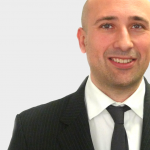 |
The header video belongs to the European Commission and is available at: https://youtu.be/nEWiL7A9kIY
